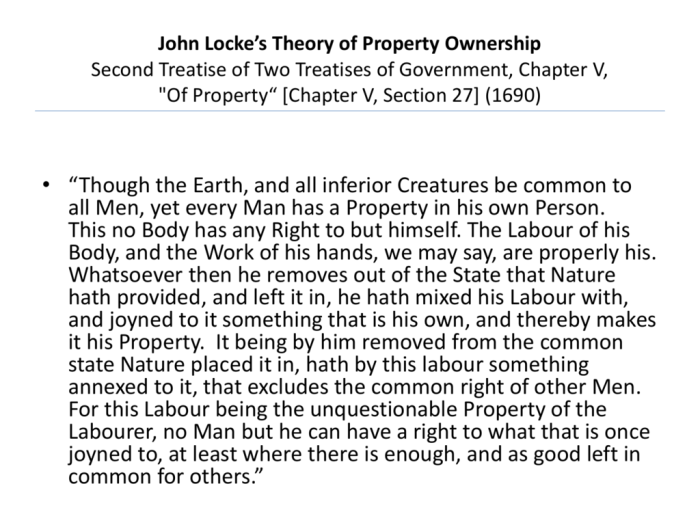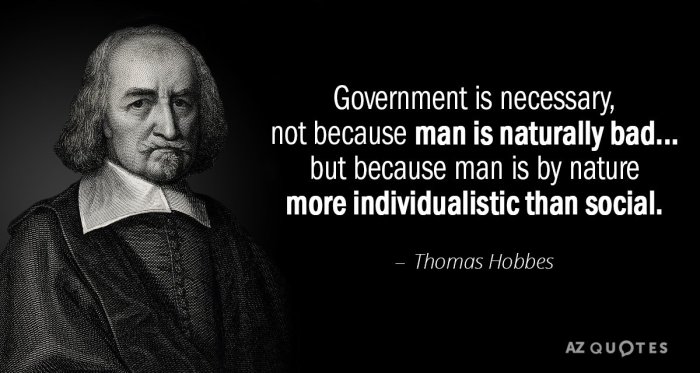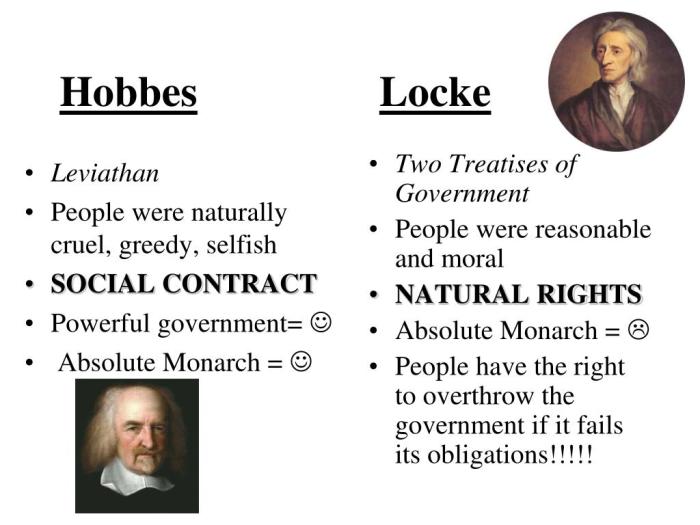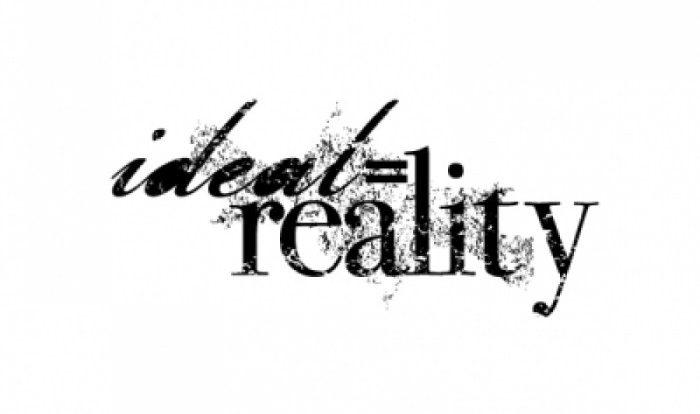Embarking on an exploration of why government hobbes and locke answer key, this introduction immerses readers in a unique and compelling narrative, with an authoritative tone that is both engaging and thought-provoking from the very first sentence.
Political philosophies of Thomas Hobbes and John Locke form the cornerstone of modern political thought. Their contrasting views on human nature, the state of nature, and the role of government have profoundly influenced the development of political systems and continue to shape contemporary debates.
1. Introduction: Why Government Hobbes And Locke Answer Key
Thomas Hobbes and John Locke were two of the most influential political philosophers of the 17th century. Their ideas about the nature of government and the relationship between the state and the individual have had a profound impact on Western political thought.
Both Hobbes and Locke believed that the state of nature, or the condition of human beings before the establishment of government, was a state of war. In this state, everyone was free to do whatever they wanted, but this freedom came at a great cost.
Life was short, brutish, and nasty.
To escape the state of nature, Hobbes and Locke argued that people must enter into a social contract with each other. This contract would create a government that would protect their rights and ensure their safety.
2. Hobbes’s View of Government

Hobbes believed that human nature is inherently selfish and competitive. He argued that people are motivated by a desire for power and that they will stop at nothing to achieve their goals. This view of human nature led Hobbes to conclude that the only way to create a stable and orderly society is to establish a strong central government.
Hobbes’s ideal government was an absolute monarchy. In this type of government, the monarch has unlimited power and is not subject to any checks or balances. Hobbes believed that this type of government was necessary to prevent the state of nature from returning.
3. Locke’s View of Government

Locke had a more optimistic view of human nature than Hobbes. He believed that people are rational and capable of self-government. Locke also believed that people have certain natural rights, such as the right to life, liberty, and property. These rights are inherent in all human beings and cannot be taken away by the government.
Locke’s ideal government was a limited government. In this type of government, the power of the government is limited by a constitution or other set of laws. Locke believed that this type of government was necessary to protect the natural rights of the people.
4. Comparison of Hobbes and Locke

| Hobbes | Locke | |
|---|---|---|
| View of human nature | Inherently selfish and competitive | Rational and capable of self-government |
| State of nature | State of war | State of peace and equality |
| Social contract | Creates a strong central government | Protects the natural rights of the people |
| Role of government | To maintain order and prevent the state of nature from returning | To protect the natural rights of the people |
5. Influence of Hobbes and Locke
The ideas of Hobbes and Locke have had a profound impact on Western political thought. Hobbes’s ideas have been used to justify the establishment of strong central governments, while Locke’s ideas have been used to justify the establishment of limited governments.
The ideas of Hobbes and Locke continue to be debated today. Some people believe that Hobbes’s view of human nature is too pessimistic, while others believe that Locke’s view of human nature is too optimistic. However, there is no doubt that the ideas of Hobbes and Locke have had a profound impact on the way we think about government.
FAQ Guide
What is the social contract?
The social contract is an implied agreement among the members of a society to cooperate for their mutual benefit. It Artikels the rights and obligations of both the government and the citizens.
How did Hobbes justify absolute monarchy?
Hobbes believed that human nature is inherently selfish and competitive. In the state of nature, without a strong authority to enforce order, life would be “solitary, poor, nasty, brutish, and short.” Therefore, he argued that people should surrender their individual freedoms to a sovereign who would protect them from the chaos and violence of the state of nature.
What were Locke’s natural rights?
Locke believed that all individuals possess certain fundamental rights by virtue of their humanity. These rights include the right to life, liberty, and property. He argued that governments are instituted to protect these rights and that they should be limited in their power to prevent them from becoming tyrannical.
